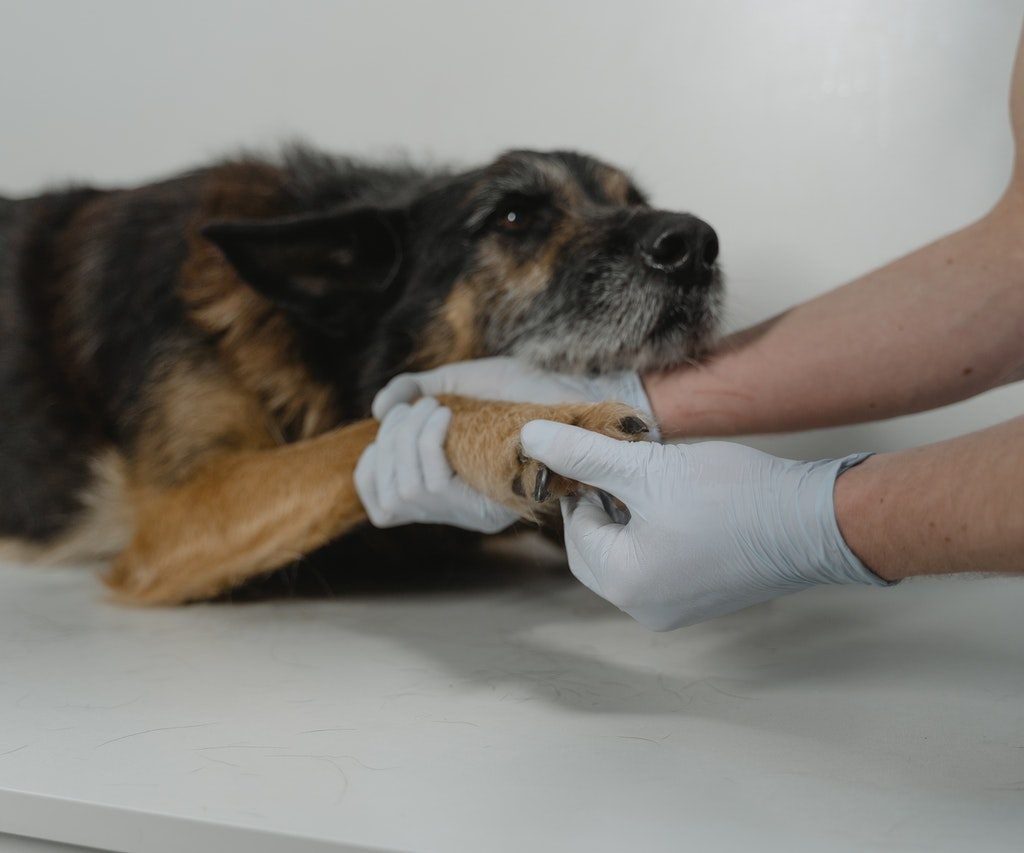When our four-legged friends are hurt, we want to give them all the care and attention they deserve. Of course, sometimes it can be hard to tell why your pooch is sick or injured — or if they’re even hurt at all! Is your dog limping? It might be a medical issue or your pup might just be looking for attention.
The pet parent in this video, Gerald Wakimoto, was faced with his adorable pup, Hairy, showing off an injured paw. But at the mention of a walk, Hairy’s tune changed!
First, you can see Hairy hobbling after Wakimoto, showing off a hurt paw (though Hairy’s tail is still wagging enthusiastically). And when Dad suggests Hairy can’t go for a walk? Hairy’s little head tilt is everything. You can just see the wheels turning — “What do you mean no walk?”
And suddenly, somehow, Hairy’s injury magically disappears. When Dad mentions getting the leash, it’s go time.

Do dogs fake injuries?
Dogs can’t fake illnesses like fever, vomiting, diarrhea, or rashes, but a leg injury like a dog limp? The comments section of the video is filled with anecdotal evidence of that.
One user noted that his father’s dog broke his leg. After the cast was removed, his dad massaged the pup’s healed leg. Later, when the dog got in trouble, he began to limp and gave his pet parent his “hurt” paw.
Another noted that their dog limped for three days — until someone mentioned the word “vet.”
Another user agreed, discussing how their golden retriever would fake an injury when he got tired on a walk… but would always recover when told it was time to go home.
There was even a case in Great Britain where one man, Russell Jones, spent hundreds at the vet on his dog’s limp, only to find out his pooch was mimicking Jones’ own injury.

How to tell if your dog’s limp is real
Of course, you never want to just assume your dog is faking. Even if your dog “recovers” from a limp, they might just be masking their pain because they’re looking forward to their evening walk or they want to avoid something they consider unpleasant (like a trip to the vet).
Go to the vet
How can you tell if your dog is faking? Even if you think they might not be injured, you should consult your vet. They’ll be more equipped than you to identify any medical causes of your dog’s symptoms and behavior.
Vets typically group limping into two categories: gradual onset limping and sudden limping. Common reasons for a limp include:
- Superficial injury or trauma, such as a cut or a scrape
- Deeper trauma, such as a torn ligament, bone fragment, or sprain
- Joint disease
- A side effect of infections like Lyme disease
- A side effect of cancers like osteosarcoma
Consider your dog’s history and behavior
First, check your dog for any visible injuries like a cut on their paw.
You should also be sure to consider your dog’s history. For example, if your dog was recently hurt trying to crawl under a fence, that could explain your dog’s limp and indicate this is no fake injury.
And, just like humans, dogs suffer from pulled muscles and other minor aches and pains. Pay attention to all of your dog’s behaviors.
Test your dog’s limp
Since dogs will fake an injury for attention and sympathy, briefly ignore your dog to see if the limp suddenly reappears. If this is the case, consider why your dog is feeling needy:
- Did you recently move homes and they’re feeling anxious about the change?
- Did you bring home a new pet and they’re feeling threatened?
- Is there a new human member of the family (either a child or a partner who moved in)?
- Has your routine changed and you’re spending more time out of the house?
Once you’ve figured out the cause, you can address it properly with your pup.
Plenty of dogs are fakers like Hairy, and these adorable pooches will do anything to gain a little attention. If your dog has a limp, be sure to take them to the vet to make sure more serious issues aren’t at play. If your vet tells you there’s nothing physically wrong with your dog, take it as a sign your pup just might want to spend more time with you. (Hey, that’s a good thing, right?)


